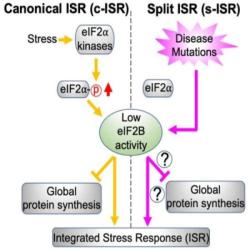
Teaching
- BSCI436: RNA Biology and Therapeutics
- HNUN278V: climate change, infectious disease and civil society.
Graduate Program Affiliations
- BISI-Behavior, Ecology, Evolution, & Systematics (BEES)
- BISI-Computational Biology, Bioinformatics, & Genomics (CBBG)
- BISI-Molecular & Cellular Biology (MOCB)
Research Interests
Virology
The maintenance of correct translational reading frame is fundamental to the integrity of the protein synthetic process, and ultimately to cell growth and viability. Despite this, it has been demonstrated that certain viruses utilize specific signals on their mRNAs that induce elongating ribosomes to shift reading frame. The highly controlled efficiencies of PRF events ensure that the proper stoichiometric ratio of viral structural to enzymatic proteins are available for viral particle assembly. Changing frameshifting efficiencies alters this ratio, preventing proper viral particle assembly and interfering with virus propagation. Thus, programmed ribosomal frameshifting presents a promising new target for anti-viral pharmacological intervention. We are characterizing a series of yeast mutants and drugs in order to identify new targets for antiviral therapies. We are also working to create a reverse genetic system for a dsRNA virus of yeast.
Ribosome Structure & Function
One important function of the ribosome is to faithfully maintain translational reading frame. Viral mRNA signals that abrogate this function by programming ribosomes to shift frame have proved to be of tremendous utility in elucidating the molecular mechanisms underlying this essential task. The newly available atomic resolution structures of ribosomes mark a critical milestone in the quest to link ribosome structure with function, and our studies on PRF have begun to link ribosome structure with translational frame maintenance. We have shown that both the biophysical interactions between ribosomal proteins rRNAs and tRNAs, and the biochemical properties of ribosome-associated enzymatic activities are both important for proper reading frame maintenance. On a broader scale, our work also is consistent with the hypothesis that communication between the different functional centers of the ribosome is critical for coordinating ribosome structure with its various functions. Of particular interest, recent structural analyses of mutants that we had previously identified as affecting frameshifting reveals that they correspond to critical points of contact between specific ribosomal components. This positions us for to conduct reverse genetic studies linking ribosome structure with function.
Regulation of Gene Expression
Since "biological systems tend to use whatever works", there is no reason to believe that programmed ribosomal frameshifting is exclusively utilized by viruses. Based on this philosophy, we are pursuing a bioinformatic program designed to identify functional programmed -1 ribosomal frameshift signals in the genomic databases. This effort employs a combination of computational, DNA microarray, and traditional "wet lab" approaches. We have found that programmed ribosomal frameshift signals can act as mRNA suicide elements, suggesting that PRF is used to post-transcriptionally regulate the abundance of specific mRNAs and their encoded protein products. The reverse side of this coin is the question of how viruses have evolved to circumvent this regulatory mechanism, allowing them to utilize programmed ribosomal frameshifting without having their mRNAs degraded.
Awards
- 2016 University of Maryland Integrated Life Sciences program Mentor of the Year Award
- 2015 Committee on Institutional Cooperation Department Executive Officers Fellowship
- 2014-15 Committee on Institutional Cooperation Academic Leadership Program Fellowship
- 2014 Summer Research and Scholarship Award, UMD Graduate School
- 2012-13 UMD ADVANCE Leadership Fellow
- 2011 UMIACS New Research Frontiers Award
- 2007 Finalist, Life Sciences Invention of the Year, University of Maryland
- 2005 Thomas Alva Edison Patent Award
- 2004 University of Maryland College of Life Sciences Faculty Excellence Award for Research
- 2004 Outstanding Invention of 2003, Life Sciences. University of Maryland Office of Technology Commercialization, Research and Graduate Studies
- 2003 Merck-Frosst Lecture, University of Montreal
- 2002 University of Maryland, College of Life Sciences Workstation Deployment Program Faculty Technology Matching Funds Award
- 1995-96 American Cancer Society Junior Faculty Research Award
- 1992-95 National Institutes of Health Staff Fellowship
- 1989-92 Intramural Research Training Award Fellow, NIH
- 1989 Fredrick B. Bang Award, Department of Immunology and Infectious Diseases, JHU
- 1987-89 Post Certified Scholarship Award, Johns Hopkins University
- 1986 Tuition Scholarship Award, Johns Hopkins University
- 1984 Sigma Xi Award, Johns Hopkins School of Hygiene and Public Health
Editorial Activities
- Faculty of 1000 (2019-present)
- Journal of Biological Chemistry (2015-present)
- Nucleic Acids Research (2007-present)
- Infection and Drug Resistance (2018-present)
Education
- A.B., Philosophy, Oberlin College, 1980
- Ph.D., Johns Hopkins University, 1988









